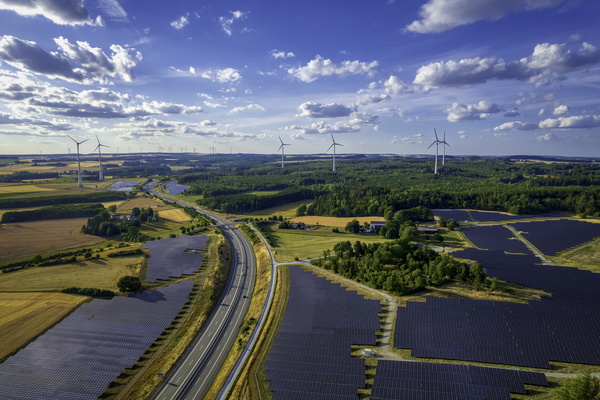Why local action is critical for a zero-waste future
Cities in the ASEAN region are booming in productivity – but this comes with an ever-more-urgent need to combat rising sustainability challenges

Maimunah Mohd Sharif, Mayor of Kuala Lumpur and Under-Secretary General and Executive Director of UN-Habitat 2018-2024
Cities in the ASEAN region have grown wealthier thanks to their universal adoption of planned urbanisation, but they have also adopted unsustainable consumer-dependent growth models. We now have major issues with mobility, housing, the provision of basic services and growing inequality. By being plan-led, we have moved up in the economic ladder and widened opportunities for a substantial number of our citizens to emerge from poverty – but the cost has been overflowing landfills, pollution and the loss of biodiversity.
That’s why I look forward to welcoming mayors and governors from the ASEAN region to Kuala Lumpur on 10 August for ASUF/AGMF/MGMAC 2025, three combined forums with a joint focus on green initiatives and sustainability. We are expecting some 8,000 delegates in addition to over 300 mayors. I will also be hosting the Mayors and Governors of ASEAN’s capital cities in what promises to be the largest meeting of frontline stakeholders in one of the world’s fastest-urbanising regions.
I see both challenges and opportunities in sustainable urbanisation for ASEAN. With a collective population of over 677 million and a GDP of $3.8 trillion (2023), the 10-state ASEAN region ranks fourth after the US, China and the European Union. With an average GDP growth rate of 4 per cent in the past decade, it is also urbanising fast.
Malaysia itself has come a long way during my lifetime. In 1963, when the state was formed, our GDP per-capita stood at $250. Today it is closer to $13,000. We have achieved this by modernising the economy, diversifying from primary industries to manufacturing, and strengthening our service economy.
Why focus on waste?
During my tenure as Executive Director of the United Nations Human Settlements Programme (UN-Habitat), we worked with member states to strengthen the voices of local governments in the multilateral system. It was only logical that local governments as a constituency be brought into the picture, as they are at the forefront of translating policies into action on the ground.
I also advocated for the provision of basic urban services as a human right. Although it is more popular to advocate for self-actualisation, coming from a developing country and a background in rural poverty, I believe that the most basic human right is the right to development. The right to shelter, to clean water and to clean air.
This is why one major focus was on zero-waste initiatives. Not only because waste is a challenge that every mayor and city administrator is struggling with, but because waste management brings all members of society to work together to improve the quality of life for all. It is heartening that zero waste is also a thematic focus area of the joint presidency of the UN-Habitat Assembly of Malaysia and the United Arab Emirates.
Zero waste: a call to action
This is why I am calling on mayors and governors of ASEAN capital cities to adopt and champion zero-waste policy. We can learn so much from each other, and we can lead by driving circularity and lifecycle approaches and fostering innovation in waste management. For example, in the case of textile waste, which is the focus of the United Nation’s zero-waste agenda this year, we can work to integrate solutions such as clothes banks to promote the reuse and ensure the safe disposal of textile waste.
In step with guidance from UN-Habitat and UNEP, what we really need to do at the ASEAN and other mayors’ platforms is to compare practices and champion systemic change. In each of our cities, let us pledge to protect vulnerable communities from exposure to pollution by enforcing urban environmental standards and improving waste management infrastructure. At the same time, let us work to better integrate and support informal waste workers into the mainstream economy. We can do this by advocating for the development of inclusive policies, and by implementing innovative city-led solutions.
We must invest in more effective public engagement. This is what I call the 4P approach, where we work sincerely with public, private and people partnerships. Partnerships that encourage circular business services, such as repair and rental services that extend the lifespan of everyday objects. From Kuala Lumpur to Manila, let us focus on driving policy solutions and encouraging local initiatives that promote sustainable consumption patterns.
ASEAN cities can take the first step by subscribing to and joining UN-Habitat’s Waste Wise Cities network. We, as a collective, can also partner with the Zero Waste Foundation, led by its President, Mr Samed Agirbas, which will be present at the ASEAN Mayors and Governors Forum (AGMF) in Kuala Lumpur, from 10-15 August.
At the national level, and heeding the call of the Malaysian-UAE Presidency of the UN-Habitat Assembly, I am looking forward to contributing towards the efforts of the UNSG’s Advisory Board on Zero Waste. It will be good to develop guidelines for member states on implementing city-wide zero waste initiatives and projects, and developing concrete zero-waste strategies – currently, there is no accepted global definition of zero waste.
Indeed, cities with a more mature and effective zero-waste policies, including those outside ASEAN such as Yokohama, can act as mentor cities. Although we must always adapt best practices to local situations, there is no reason to reinvent the wheel.
The key is not only to manage waste but to reduce it. I have always advocated for a fourth R in the 3R approach to reducing waste generation. While it is important to refuse, reuse, and recycle, let us begin with rethinking. Only when we have decided to rethink how we consume can our cities become truly zero-waste.
As I have said before, when the going gets tough, the tough go local.
The ASEAN Mayors and Governors Forum
Kuala Lumpur, 10-15 August 2025
In conjunction with the Malaysian Chairmanship of the Association of South East Asian Nations (ASEAN), and working in partnership with the United Cities and Local Government Asia Pacific (UCLG-ASPAC), Kuala Lumpur will be hosting the ASEAN Mayors and Governors Forum (AGMF) from 10-15 August this year.
8,000 delegates, including 300 mayors and governors of the ASEAN region, have registered to be at the forum. Besides the AGMF, Kuala Lumpur is also hosting the Meeting of ASEAN Mayors and Governors Capitals (MGMAC) on 13 August. These are accredited events and meetings of the ASEAN secretariat. Working with UN-Habitat, Malaysia is also hosting the ASEAN Sustainability Urban Forum (ASUF).
The idea here is to align all three meetings, share facilities and ensure the best use of resources in line with the ASEAN 2045 Vision. As stated, “In this forum, we are dedicated to creating a greener environment by promoting eco-consciousness and sustainability. The ASUF/AGMF/MGMAC 2025 encourages green initiatives such as waste separation at the venue, using your own bottle and food container and carpooling to the venue.”
The Zero Waste Foundation will also be present in Kuala Lumpur. The Zero Waste Foundation will be at the Forum to advocate for the fourth and missing R in the 3R approach to waste management: rethinking. It is important to revise how we use resources, rethink the way we consume and remake our relationship with the waste we generate. The exhibition will provide an immersive experience and hopes to inspire visitors to rethink their way of life to include zero-waste principles and practices.

Business Reporter Team
Most Viewed
Winston House, 3rd Floor, Units 306-309, 2-4 Dollis Park, London, N3 1HF
23-29 Hendon Lane, London, N3 1RT
020 8349 4363
© 2025, Lyonsdown Limited. Business Reporter® is a registered trademark of Lyonsdown Ltd. VAT registration number: 830519543





